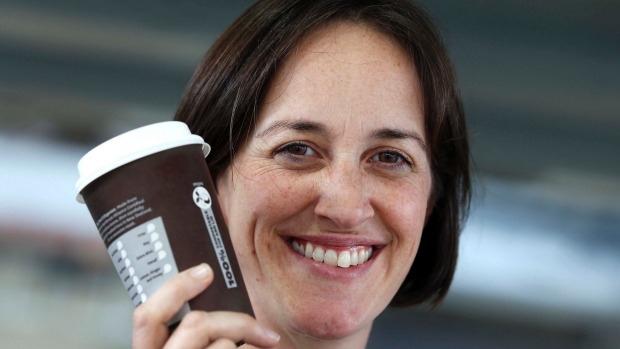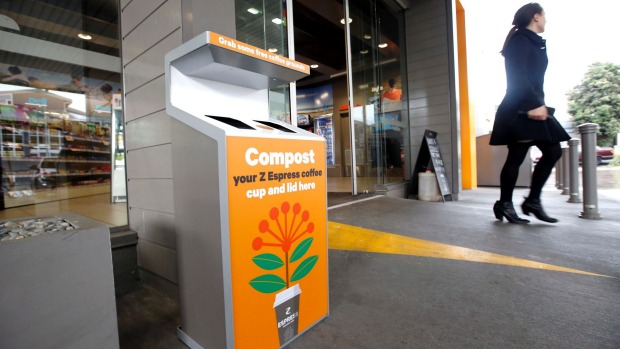 |
| Reviews and Templates for Expression We |
Z launches recycling scheme to turn coffee cups into compost
Petrol station chain Z sells nearly five million coffee cups every year, and now it wants them back – for a good cause.
Takeaway coffee cups have been trucked off to landfills in their droves, even those whose users diligently placed them in recycling bins.
That is because many of the country's recycling plants do not have the necessary technology to do the job.

Z Sustainability Manager, Emily Watt.
The complexity of removing the cups' inner lining, which is made out of polyethylene (PE), means most are thrown away.
Z, which produces almost 90,000 hot drinks each week, has now launched the first large-scale compostable cup collection.

Z has installed compostable coffee cup collection points at more than 70 of its service stations.
More than 70 Z stores have become designated collection points for used coffee cups, limited to areas where commercial composting was available.
"New Zealanders use more than 180 million coffee cups a year," Z sustainability manager Emily Watt said.
"I think what a lot of coffee drinkers don't realise is that takeaway cups, although they're made of paper, they're lined with plastic, so they can't be recycled in New Zealand. A lot of them end up in the landfill.
"For Z alone, if you lined all the cups we sell up [over a year], it would stretch from Hamilton to Wellington ... It's just a lot of waste."
Once collected, the company's new compostable cups will be taken to local recycling facilities where they will be put with other organic waste.
"They make massive piles of this compost and they let it sit. It gets extremely hot in there and they turn them and turn them and, then, within 90 days, it's turned into fertiliser and people buy it for their gardens."
Watt hoped other retailers would follow Z's lead.
"Many cafes have organic waste collection, anyway, for their food waste. Compostable cups can be collected with those. It would also be really cool if councils got on board and created collection points too."
|
|
|
|
Copyright remains with the original authors |